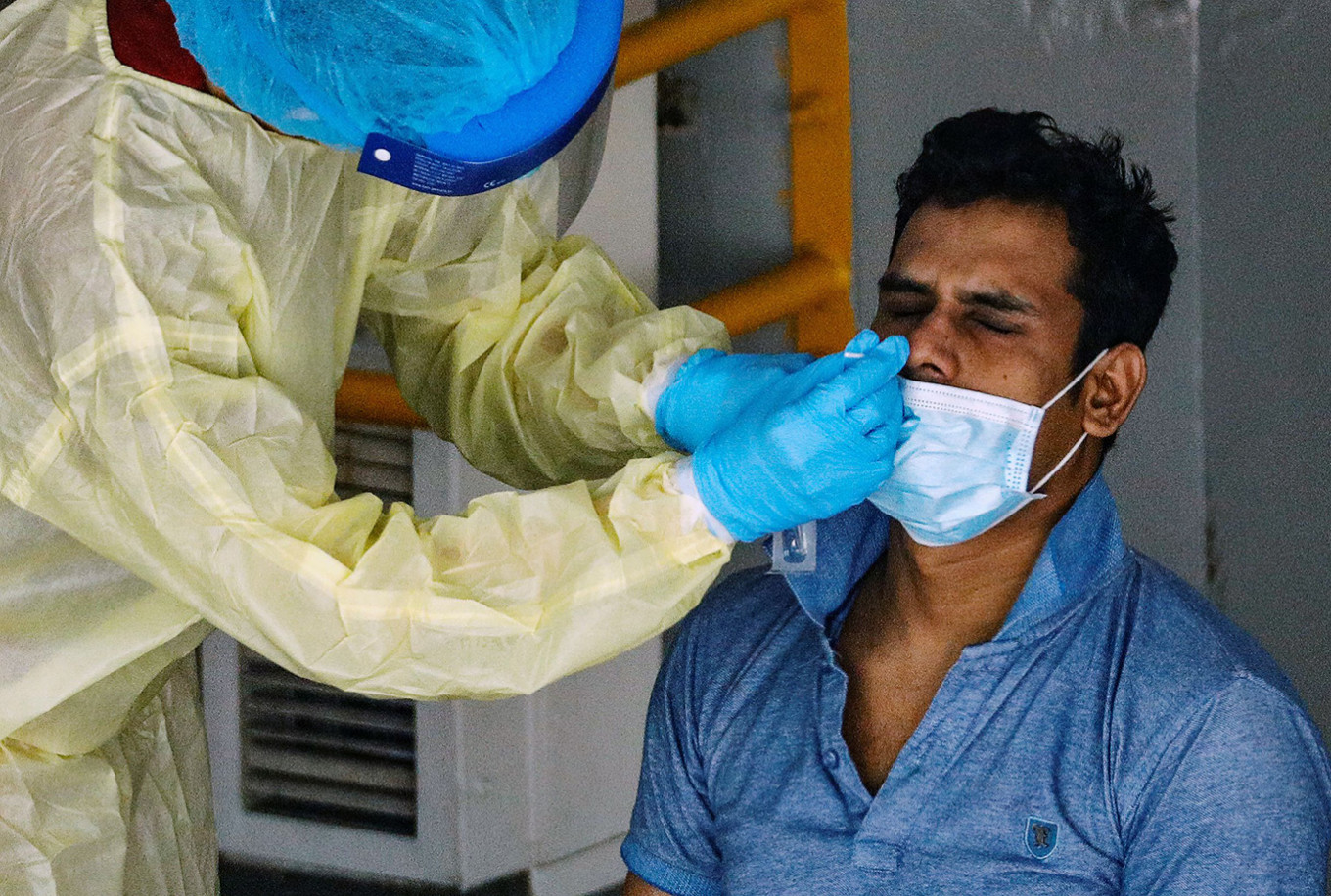Migrant workers and a second Southeast Asian COVID-19 wave
ASEAN needs to renew its commitment to addressing COVID-19 and its impact on migrant workers.
Change text size
Gift Premium Articles
to Anyone

A
s occurred during the early stages of the COVID-19 pandemic last year, this year’s Idul Fitri was marked by mudik (exodus), as people left their cities of residence for their hometowns despite mobility restrictions imposed by the government to prevent the spread of the virus.
These restrictions ranged from mudik bans to intercity mobility restrictions prior to and during Idul Fitri. The mudik ban was enforced by limiting the operation of public transportation and blocking frequented mudik routes and the return flow of people.
The measures were taken to prevent a spike in COVID-19 transmission, especially because the country had seen a downward trend in new cases in March and April, when active cases stood below 100,000. Based on data from May, active cases hit 87,514.
Keeping that momentum is certainly not easy. In fact, despite the restrictions, defiance of the mudik ban occurred everywhere. The desire to celebrate Idul Fitri in one’s hometown outweighed, for whatever reason, the government’s mobility curbs.
The government has estimated that 1.5 million people traveled to and from their hometowns in Java and Sumatra during the Idul Fitri holidays. This, compounded by the crowds that appeared at numerous tourist destinations across the country from May 13 to 16, makes it possible that this year’s Idul Fitri will trigger an explosion of COVID-19 infection in the coming weeks.
No less complicated are the latest developments in Southeast Asia, which is experiencing a second wave of COVID-19 transmission. Indonesia's close neighbors, such as Malaysia, Singapore and Thailand, have imposed local lockdowns to curb the spread of the virus. The Philippines has also remained unable to control COVID-19 transmission, and the upcoming 2022 elections are likely to accelerate the escalation of new cases.
Meanwhile, Cambodia, Laos and Vietnam, which have been reported to be “safe” from the pandemic, have also reported new cases and a rise in the death rate. Brunei Darussalam has opted for information closure, making its actual state of COVID-19 transmission invisible. The virus situation has certainly been more difficult to control in Myanmar since the military coup on Feb. 1.
The explosion of COVID-19 transmission and the spread of new virus variants is another challenge for Southeast Asia. Some experts claim the new variants, which are reportedly more virulent, have triggered a new wave of COVID-19 transmission in various countries.
No doubt the pandemic, over its one and a half years of existence, has affected the labor migration situation in Southeast Asia. In particular, Southeast Asia is an economically dynamic region in which labor migration has been a significant driver of growth. This is also supported by the “neighborhood” factor, as nearby countries can easily be reached by land, sea and air.
The policy of limiting mobility and closing borders in the wake of the pandemic has severely impacted migrant workers. The health crisis has caused many migrant workers to lose their jobs, as has been happening in Malaysia since the Movement Control Order came into force in mid-March 2020.
In particular, millions of undocumented migrant workers in Malaysia are now jobless. Documented migrant workers, too, are vulnerable to job losses and wage cuts as a result of the pandemic-induced economic crisis.
For many Indonesian migrant workers, even if there were no mudik ban in place back home, returning to their hometowns would have been very risky, as they might not have been able to come back to their host countries. They chose not to join in the exodus so that they could keep their jobs.
Serious problems will arise when their immigration documents and work visas expire. On one hand, they have to extend the necessary documents, but on the other hand, mobility restrictions and border closures will prevent them from doing so. This situation will potentially render them undocumented or overstayers, making them vulnerable to criminalization under strict immigration laws.
Despite the threats facing migrant workers, host countries have not taken progressive steps to soften their immigration policies. Such relaxations have been recommended by the World Health Organization, which puts the law behind health matters.
ASEAN must act quickly to spare migrant workers from the worst of the pandemic. Last year, ASEAN held a special summit to fight COVID-19 together. The declaration resulting from that summit has remained a document only. And even the document ignores the issue of the vulnerability of migrant workers.
ASEAN needs to renew its commitment to addressing COVID-19 and its impact on migrant workers. More specifically, it should call for the relaxation of immigration policies to prevent the criminalization of migrant workers.
ASEAN must also promote equal rights and access to health services, testing and vaccination against COVID-19 for migrant workers. Protecting migrant workers from the virus constitutes recognition of their role as drivers of economic growth in the region. After all, nobody should be left behind in the effort to achieve global herd immunity to COVID-19.
***
The writer is executive director of Migrant CARE.









